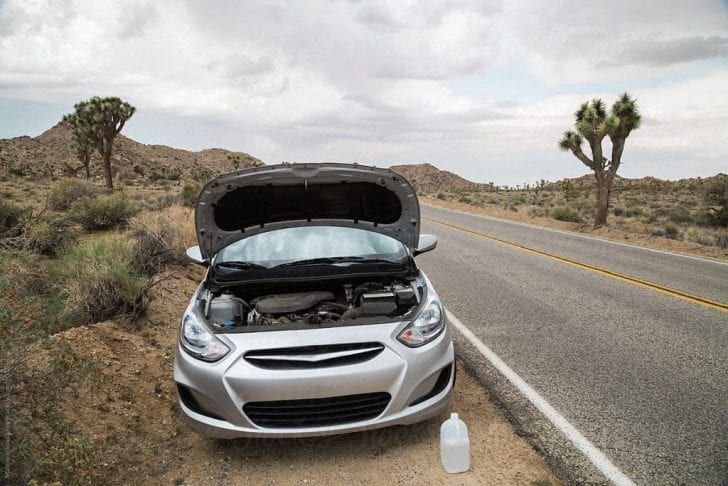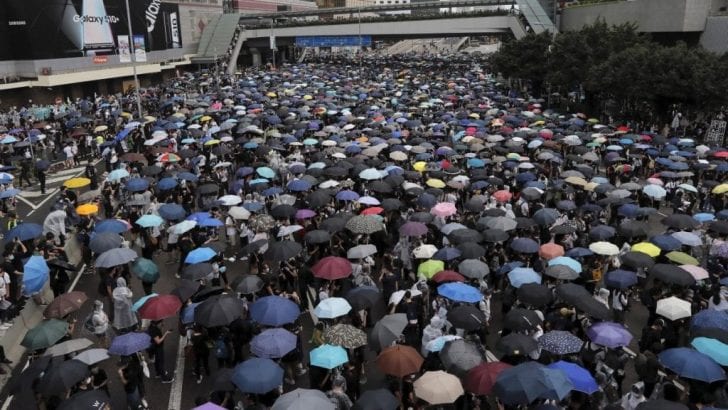Accidents happen all the time regardless if you’re ready or not – or if your wallet is prepared or not. That’s why they are called accidents, they are not planned and most certainly not expected, in other words: emergencies.
This is one of the major reasons it is important to save money, so when times like these come, we have something to pull out of our pockets.
Although this may be filed under the “common sense” folder, a recent survey found that not all Americans are prepared for these dire moments.
Nowadays, it’s hard to make ends meet – what with the shutdown that’s happening and the rising cost of basic commodities, each day gets tougher and tougher.
That said, the situation will just get worse when a sudden event happened that would require you to shell out cash pronto. Your water heater ruptured? The car broke down? Need surgery?
These are just some of the things that can surprise you any time of the day. Ask yourself, can you immediately cover up a $1,000-emergency expense?

Survey Results
According to a survey done by finance website Bankrate, only 40 percent are actually prepared for a $1,000-accident, which means the majority are still walking around while being financially unstable.
Out of the more than 1,000 respondents, 30 percent admitted they or their family members faced at least one unexpected emergency expense in the past year, while 36 percent said their largest bill amounted to $5,000 and above.
Interestingly, not all of the respondents are willing to bring out cash for an unexpected expense such as car repair or a visit to the emergency room.
As mentioned, only 40 percent have the means to immediately address an emergency by withdrawing money from their savings or bank account while 15 percent would secure a loan or leave it to their credit card and then pay the debt later.
Fourteen percent said they would just reduce their spending, 13 percent will borrow money from friends or family, and 6 percent will take a personal loan. What’s alarming is that 10 percent of them don’t know what to do.
Effect of a $1,000-Expense
This means that a $1,000-unexpected expense, be it from an accident or a car or house repair, would leave the majority of the Americans with debt.
George Washington University School of Business economics and accounting professor Annamaria Lusardi likened savings to an umbrella, which protects us from the rain.
We can’t always say when it’s going to pour, so it is always handy to have one with you wherever you go. It is better to be prepared than to be sick, after all.

If you have $1,000 in the bank, you may now be pretty confident that you’re financially stable enough, but think again. Yes, it is better than having nothing at all but this is far from what you need in the future.
As per reports, you need to have savings that can cover about three to six months’ worth of expenses.
Come to think of it, it really is big – but it makes sense: you don’t know when you’re going to be fired, get sick, or be faced with an unprecedented event that will need an emergency fund.
How to Save for an Emergency Expense
The recent survey does not only shed light on the financial unpreparedness of most Americans when it comes to emergency situations, but also reflects their saving habits.
It is highly important to have spare money, this cannot be stressed enough – you need it for the future and for emergency cases, in short, it is your first line of defense. So what can you do while you still don’t come face to face with a problem like this? Save.

You can automate your savings so that a portion of your earnings immediately get transferred to your account. Also, try customizing your account details to motivate you more into setting aside money.
Change generic names of bank accounts to “emergency fund” so that you’ll be constantly reminded that you need to save and this will also refrain yourself from spending the money.
“Broke Millennial: Stop Scraping by and Get Your Financial Life Together” author Erin Lowry suggests that you should open up another account and start saving there, one different from the one you usually use.




